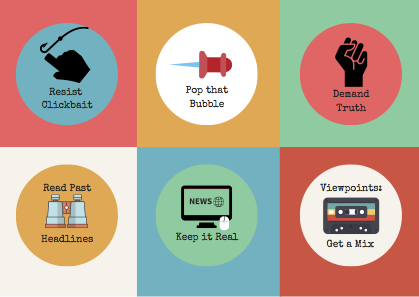Deep Fakes, Clickbait, AI...Oh My!

Article A professional article loaded with resources and book recommendations. A News– and Media Literacy–Themed Mixtape for Tough Times from School Library Journal. SOURCE: slj.com WEBSITE An easy-to-use glossary of terms and a handy infographic describing types of misleading news . Both of these and more from EAVI: Media Literacy for Citizenship . SOURCE: eavi.eu Disclaimer: The South Dakota State Library does not endorse any service, product, or recommendation listed in this post.



